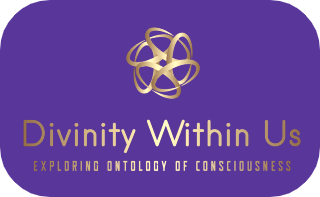Understanding the Abstract Mind
The abstract mind, also referred to as the higher mind or manas in various esoteric traditions, represents a profound aspect of human consciousness that transcends ordinary, concrete thinking. It acts as an essential bridge connecting the spiritual self with the personal mind. This higher cognitive state allows individuals to access a realm of thought free from the confines of tangible reality, enabling a deeper understanding of universal principles. Essential to grasping the abstract mind is recognizing its key characteristics which play a vital role in fostering personal transformation and spiritual growth.
One of the defining features of the abstract mind is its capacity for universal understanding. Unlike concrete thought that is bound by time and space, the abstract mind comprehends principles that are timeless and applicable across various contexts. This characteristic facilitates an awareness that transcends individual experiences, allowing individuals to resonate with collective wisdom and insights. When harnessed, this attribute of the higher mind can enlighten one’s perspective, fostering a deeper connection with the broader universe.
Intuitive perception is another significant aspect of the abstract mind. It enables individuals to grasp concepts and truths instinctively, without relying solely on logic or empirical evidence. This intuitive faculty enhances one’s ability to perceive subtle energies and dynamics that may not be readily visible in the physical realm. Furthermore, the impersonality associated with the abstract mind allows for a more detached view of situations, leading to greater clarity and less emotional interference in decision-making processes.
Finally, the abstract mind is a wellspring of creative ideation. By tapping into this higher aspect of consciousness, individuals can access innovative ideas, artistic inspiration, and solutions to complex problems. By exploring and integrating these traits of the abstract mind, individuals can unlock the transformative power it holds, enhancing their spiritual journey and personal evolution.
The Role of the Abstract Mind in Esoteric Development
In the realm of esoteric teachings, the concept of the abstract mind holds significant importance, particularly within frameworks such as theosophy and hermeticism. The abstract mind, often referred to as higher manas, represents a state of consciousness that transcends the limits of concrete thinking, which is characterized by lower manas. While lower manas is concerned with tangible, empirical realities, higher manas engages with abstract concepts, universal truths, and spiritual insights. This distinction is crucial for practitioners aiming to navigate their esoteric journeys.
The awakening of the abstract mind signals a pivotal stage in spiritual evolution, granting access to deeper levels of understanding and gnosis. Gnosis, referring to an intimate knowledge of spiritual truths, becomes available as one transitions beyond the confines of ordinary mental processes. Engaging with the abstract mind fosters self-realization and a clear comprehension of the cosmic order, allowing individuals to perceive connections that may otherwise escape their notice.
Esoteric practitioners are encouraged to adopt various methodologies to cultivate their abstract mind. Meditation serves as a primary tool, enabling individuals to quiet the concrete mind and foster an environment conducive to higher thought. By entering states of deep contemplation, practitioners may engage their innate ability to discern complexities and abstract ideas, enriching their spiritual experiences. Additionally, the study of sacred texts, imbued with esoteric wisdom, can enhance one’s capacity for intuitive understanding and reinforce the principles associated with higher manas.
Equally important is the cultivation of ethical living. Aligning one’s actions with universal principles not only harmonizes the individual with the cosmic order but also fosters the development of the abstract mind. By integrating these practices, individuals can unlock the potential of their higher consciousness, paving the way for a profound transformation that aligns them with the universal truths of existence.
Gnosis and Claircognizance: Interconnected Faculty of Knowledge
Within the realm of esoteric teachings, gnosis and claircognizance serve as interconnected faculties that provide profound insights into the nature of existence and consciousness. Gnosis, often characterized as an innate wisdom, represents the soul’s capacity to understand divine truths and experiences, transcending beyond mere intellectual knowledge. This understanding allows individuals to tap into transformative knowledge, facilitating personal growth and spiritual awakening. In contrast, claircognizance refers to the psychic ability to access and perceive information directly from elevated states of awareness. This faculty enables one to gain insights that may not be readily available through traditional means of learning.
The manifestations of gnosis and claircognizance occur across various planes of awareness, including the physical, emotional, mental, spiritual, and causal realms. Gnosis primarily operates within the spiritual and causal realms, guiding individuals to discern deeper truths about their existence and the universe. It encourages an exploration of one’s inner self, fostering an understanding of the interconnectedness of all beings. By accessing this inherent wisdom, a person can experience substantial transformation and healing, often resulting in heightened levels of compassion and love.
Conversely, claircognizance transcends the intellectual comprehension of spiritual matters, functioning more through intuition and inner knowing. This ability allows individuals to receive direct messages or insights from higher levels of consciousness, which can manifest as thoughts, ideas, or revelations. As such, claircognizance operates most prominently within the mental and spiritual planes, serving as a channel through which higher knowledge can be conveyed.
Despite their distinct attributes, gnosis and claircognizance complement each other in unlocking the mysteries of existence. Together, they pave the way for a deeper spiritual insight and enlightenment, equipping seekers with the tools necessary to navigate their spiritual journeys effectively.
Cultivating Gnosis and Claircognizance for Spiritual Awakening
To cultivate gnosis and claircognizance effectively, individuals are encouraged to embrace a multi-faceted approach within their spiritual practices. One of the foundational techniques for enhancing these capabilities is meditation. Regular meditation practices can help quiet the mind and create a receptive state, allowing individuals to access deeper levels of awareness. By incorporating mindfulness and focusing exercises, practitioners can become attuned to subtle insights that often emerge during moments of silence.
Introspection plays a crucial role in this process. Taking time to reflect on personal experiences, thoughts, and feelings helps in recognizing patterns that inform one’s spiritual journey. Journaling can be an effective tool for this purpose, providing a medium to express and analyze daily reflections. This practice encourages self-discovery, allowing individuals to identify intuitive nudges or realizations that may otherwise go unnoticed.
Studying esoteric teachings is also vital in expanding one’s understanding of gnosis and claircognizance. Engaging with literature that encompasses a variety of spiritual traditions broadens perspectives and introduces potential practices that resonate with individual beliefs. Exploring different paradigms enables practitioners to integrate new insights into their spiritual development.
Energy work is another essential component of cultivating these spiritual faculties. Techniques like breathwork and chakra balancing can help individuals clear energetic blockages and enhance their intuitive gifts. Engaging in practices that focus on raising one’s vibrational frequency fosters a deeper connection to the divine and to oneself.
Finally, developing trust in one’s intuition cannot be overstated. It is essential for individuals to validate their inner guidance, recognizing that intuitive feelings can often lead to profound understanding. By practicing these methods consistently, individuals can enhance their intuitive faculties, navigate various levels of existence, and deepen their connection with higher understanding, ultimately empowering them on their spiritual path.



